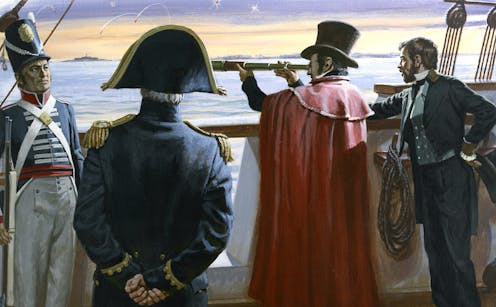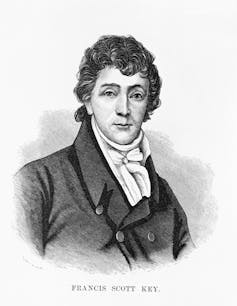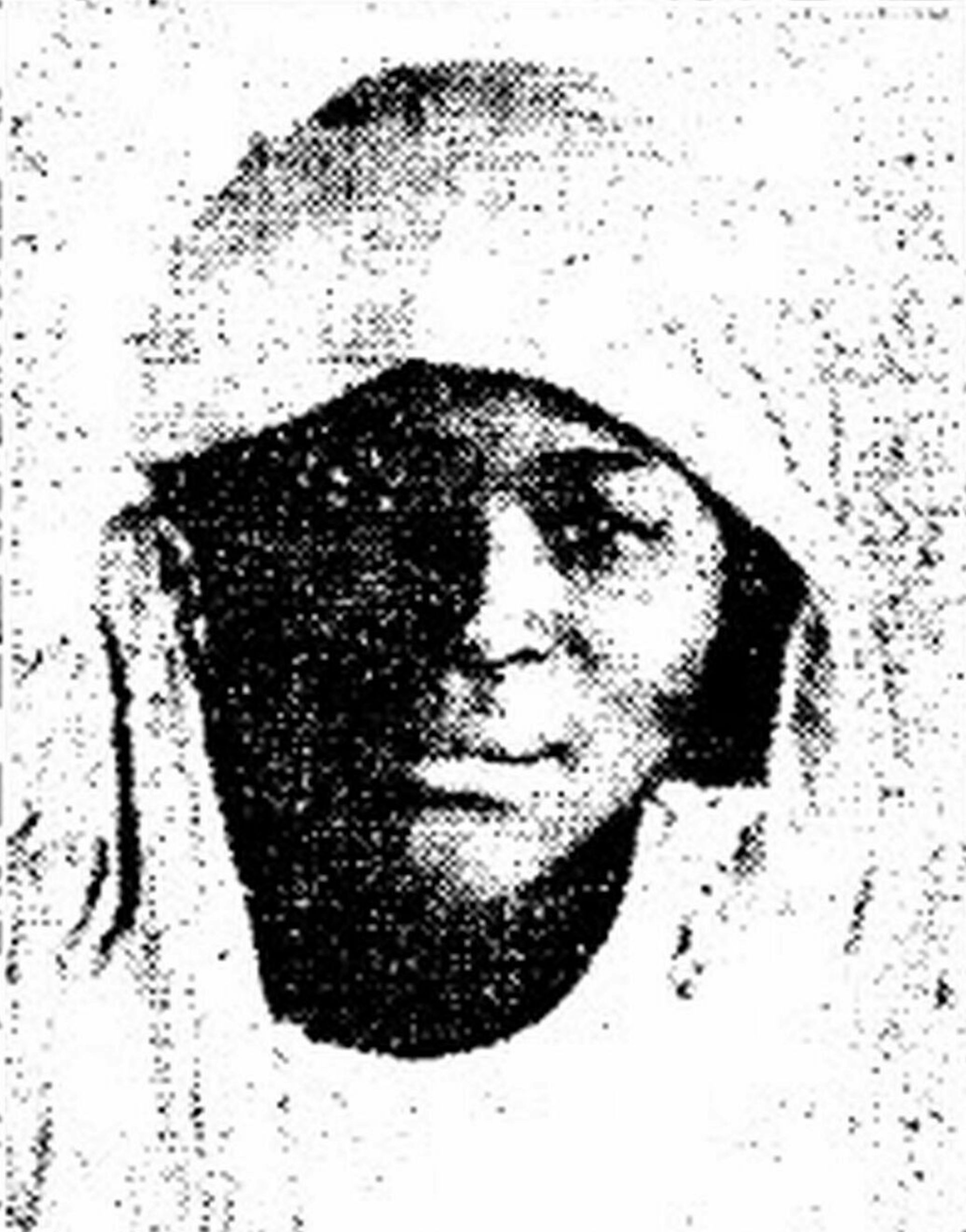Francis Scott Key: One of the anti-slavery movement's great villains
Few people embody the contradictions of U.S. history like the author of the Star Spangled Banner, someone who denounced slavery as a moral wrong but rejected racial equality.

The history wars – the battle over how we teach our country’s past – are raging.
The United States is confronting the legacies of slavery as never before. This national reconsideration has been prompted by police killings of unarmed Black men and The New York Times’ “1619 Project,” which reexamines the history of slavery in the U.S.
Outcries from conservatives over legal scholarship known as critical race theory, the premise that racism is systemic in U.S institutions, have also added fuel to the national debate.
And that is revealing some of the deepest contradictions in our history.
As a U.S. historian, I think few people embody those contradictions like the author of the country’s national anthem, Francis Scott Key.
Key’s complicated legacy
Like his idol Thomas Jefferson, Key – the man who wrote about the “land of the free” – was a slaveholder who opposed slavery in principle. He even viewed himself as an anti-slavery reformer.
But he also couldn’t fathom the idea of abolition. And the arc of his career as a Washington-area attorney reflects just how ingrained slavery was in early American life.
Born in Maryland in 1779, Key was too young to remember the American Revolution. But he came of age in its aftermath, a time when ideas of liberty and equality were practically sacrosanct in the minds of most Americans. He also came of age at a time when various Northern states abolished slavery and passed their own emancipation laws.

As a result, Key was never completely comfortable with slavery.
As a young, D.C.-based lawyer, he argued against the international slave trade and defended enslaved people in court, including those suing for freedom.
Yet Key wasn’t an abolitionist.
Instead, he channeled his anti-slavery views through the American Colonization Society. Founded in 1816, the group, run mostly by Southerners, supported the migration of freed people to Africa. Key was an original member, and he would later become one of the organization’s staunchest defenders.
Enemy of anti-slavery movement
As Key evolved into a strong supporter of colonization, the American Colonization Society fell under attack. Free people of color denounced the organization as serving the interest of slaveholders. And most Black leaders scoffed at the idea of leaving the U.S.
Moreover, opposition to the American Colonization Society in the 1820s and ‘30s gave rise to a new and more radical form of “immediatist” abolitionism. This was the abolitionism of activists like William Lloyd Garrison – publisher of “The Liberator,” America’s leading anti-slavery newspaper – and Fredrick Douglass, the escaped slave and renowned activist and orator who would become the most famous abolitionist in the country. They wanted abolition to happen quickly.
It was also the abolitionism of the American Antislavery Society, formed in 1831. Their goal was the immediate end to slavery, not the tepid and undeniably racist gradualism of the American Colonization Society.
Key did not find a home in this new movement. He never left the American Colonization Society.
When hit with the winds of change, he moved in the opposite direction. He became more conservative, and he eventually began attacking abolitionists as rabble-rousers intent on sowing the seeds of rebellion.
By the 1830s Key had become an open enemy of the anti-slavery movement and of anti-slavery publishers in particular. Abolitionists responded by making him a villain, often mocking the “Star-Spangled Banner” by adding the words “in the home of the free and the land of the oppressed.”
A final gesture
The 1836 trial of Reuben Crandall was Key’s final public performance.
In a case that made national headlines, Key, then district attorney for Washington, charged local botanist Rueben Crandall with trying to foment rebellion among area slaves. The evidence was skimpy: Police had found an assortment of anti-slavery pamphlets in Crandall’s office with instructions to distribute.
Nevertheless, Key took this as his chance to make an example of abolitionism once and for all.
In the courtroom, Key defended the right of people to own slaves and built his case around the idea that anti-slavery activism fomented rebellion among enslaved people and was thus a matter of public safety.
Then he let his true colors show. While trying to fend off allegations from Crandall’s defense that he himself had called slavery a “great moral and political evil,” he said:
“The 'great moral and political evil’ of which I speak, is supposed to be slavery – but is it not plainly the whole colored race? But if I did say this of slavery, as I am quite willing to say it, here and on all fit occasions, do I not also in the same breath speak of emancipation as a far greater evil?”
In his closing statement, Key continued this line of attack by arguing that to not prosecute abolitionists would be to hand the country over to those who wish to amalgamate the races and offer equal citizenship to people of color.
It was an open appeal to white supremacy masking the fact that Key didn’t really have a case. He could never prove that Crandall intended to foment rebellion.
Moreover, several of the pamphlets apprehended in Crandall’s apartment attacked the American Colonization Society directly, which made it seem to the jury as if Key, a known supporter of the group, was out to settle scores rather than to seek justice.
Ultimately, Crandall was found not guilty, though it wouldn’t do him much good. He contracted tuberculosis in jail and died shortly after being released.
[Over 110,000 readers rely on The Conversation’s newsletter to understand the world. Sign up today.]
With his courtroom defeat, Key practically sealed his legacy as one of the anti-slavery movement’s great villains.
And he never repented. Despite opposing slavery, his prejudices prevailed, leaving him the infamy of being one of the most notorious anti-abolitionists in American history.
Nearly 200 years later, the U.S. is left with the task of trying to tell this history – of trying to explain how the author of the national anthem could hold slaves and defend his and others’ right to do so.
Bennett Parten does not work for, consult, own shares in or receive funding from any company or organisation that would benefit from this article, and has disclosed no relevant affiliations beyond their academic appointment.
Read These Next
Iran-US nuclear talks may fail due to both nations’ red lines – but that doesn’t make them futile
The US administration may sense that Iran is weak and ready to do a deal. But negotiations could be…
In World War II’s dog-eat-dog struggle for resources, a Greenland mine launched a new world order
Strategic resources have been central to the American-led global system for decades, as a historian…
Revisiting the story of Clementine Barnabet, a Black woman blamed for serial murders in the Jim Crow
In 1912, a young Black woman’s supposed religious beliefs were quickly blamed to make sense of a terrifying…





